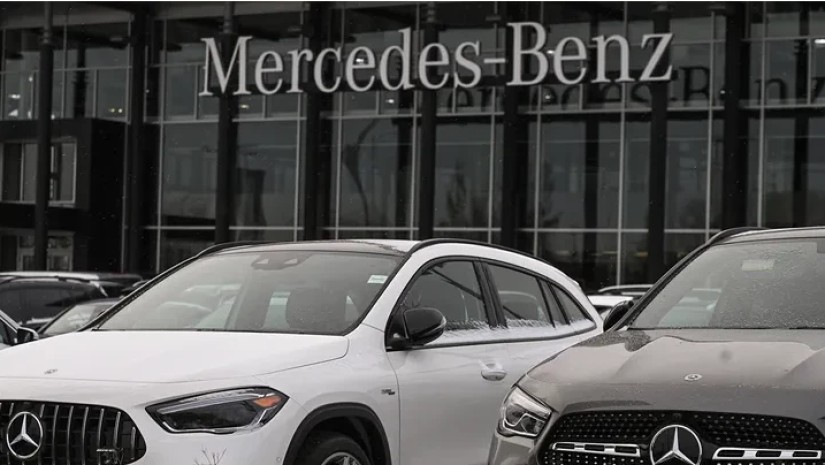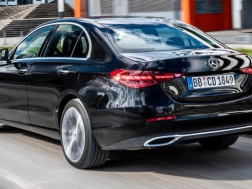Mercedes-Benz became the latest carmaker to push back its plans for electric vehicles (EVs) to make up most of its sales.
The German luxury brand now says it won't meet its 2025 deadline to have EVs, including hybrids, make up 50% of all sales. Lackluster demand for electric-powered cars has delayed that goal until at least 2030, the company said.
In the meantime, Mercedes-Benz CEO Ola Kaellenius reassured investors that the company will continue to manufacture combustion engine cars and improve its technology well into the next decade.
Its current plans for updates mean "it is almost like we will have a new lineup in 2027 that will take us well into the 2030s," Kaellenius said.
The CEO had previously warned late last year that even in Europe, sales would likely not be all-electric by 2030, with battery-powered cars currently making up just 11% of total sales, and 19% including hybrids.
Mercedes-Benz shares were up 5.9% following the news, bolstered by a $3.3 billion share buyback program announced on Wednesday.
Weak demand for electric vehicles has pushed several automakers to slow down their EV push and refocus on higher-margin hybrid and gas-powered models.
Ford Motor Co. earlier this month slashed prices on its Mustang Mach-E electric SUV by up to $8,100 after sales fell sharply in January. Ford also said in January it would reduce production of its F-150 Lightning pickup truck, cutting production at its Michigan Rouge Electric Vehicle Center to one shift starting April 1.
The Biden administration has responded to declining EV sales and moves by auto companies by planning to adjust its schedule to require companies to sell electric vehicles, the New York Times reported.
According to the Times, the administration is planning to delay a requirement that auto companies quickly increase their sales of EVs in the next few years until after 2030. The relaxed rule is part of a pending regulation that limits tailpipe emissions that will soon be finalized by the Environmental Protection Agency (EPA).
Under the EPA proposal submitted for review to the White House Office of Management and Budget, about 67% of new car sales — including sedans, crossovers, SUVs and light trucks — would be required to be electric by 2032, a dramatic increase from over 7% in 2023. It would also require up to 50% of buses and garbage trucks, 35% of short-haul freight tractors and 25% of long-haul freight tractor purchases to be electric by then.
But the ambitious goals of U.S. policymakers and car manufacturers have collided with reality, as most consumers still do not trust electric cars and are turned off by high prices.
Source: FoxBusiness
















